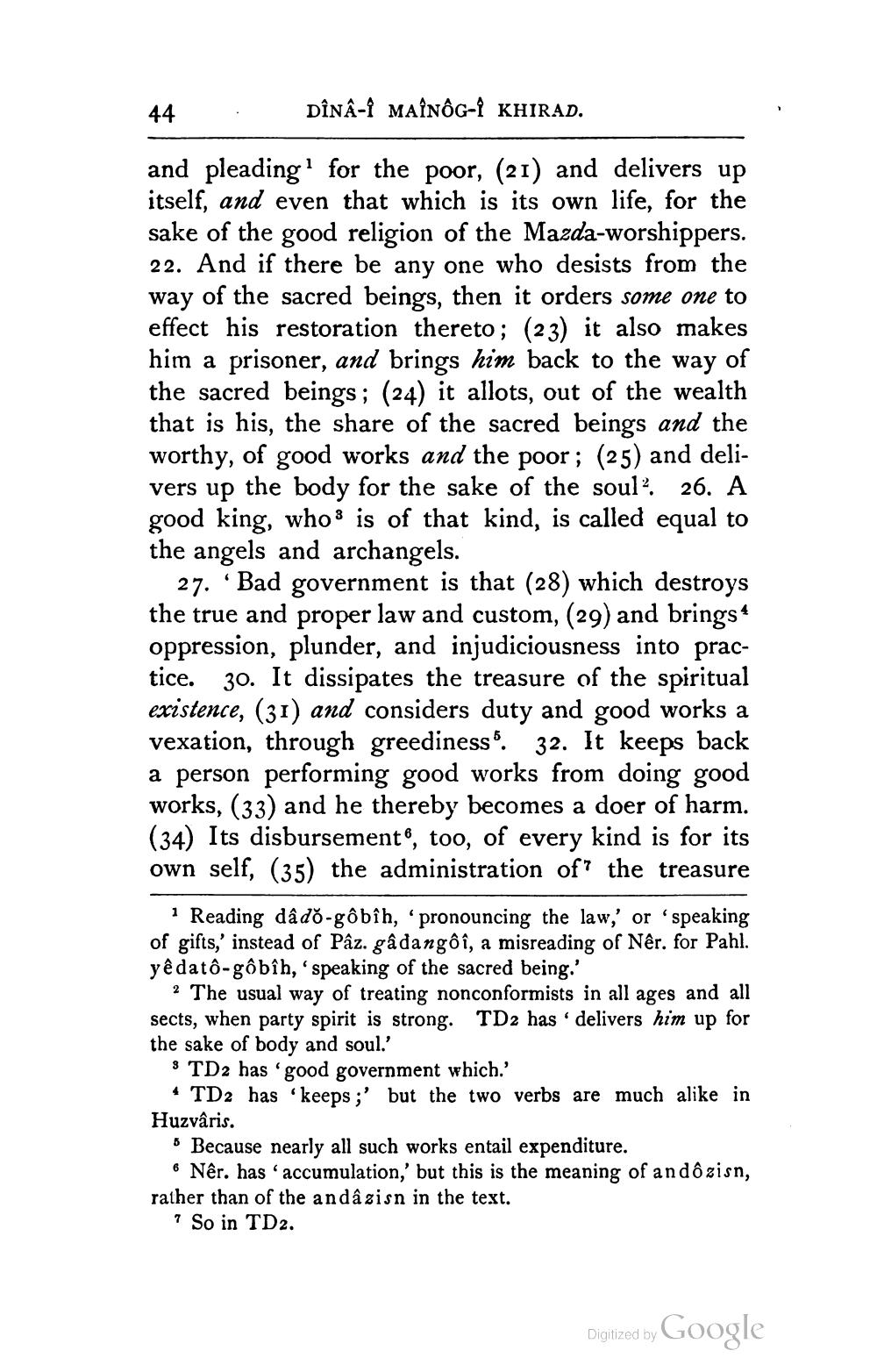________________
44
:
DÎNÂ-I MAÎNÔG-I KHIRAD.
and pleading for the poor, (21) and delivers up itself, and even that which is its own life, for the sake of the good religion of the Mazda-worshippers. 22. And if there be any one who desists from the way of the sacred beings, then it orders some one to effect his restoration thereto; (23) it also makes him a prisoner, and brings him back to the way of the sacred beings; (24) it allots, out of the wealth that is his, the share of the sacred beings and the worthy, of good works and the poor ; (25) and delivers up the body for the sake of the soul?. 26. A good king, who 3 is of that kind, is called equal to the angels and archangels.
27. 'Bad government is that (28) which destroys the true and proper law and custom, (29) and brings 4 oppression, plunder, and injudiciousness into practice. 30. It dissipates the treasure of the spiritual existence, (31) and considers duty and good works a vexation, through greediness. 32. It keeps back a person performing good works from doing good works, (33) and he thereby becomes a doer of harm. (34) Its disbursement, too, of every kind is for its own self, (35) the administration of the treasure
Reading dâdo-gôbîh, 'pronouncing the law,' or 'speaking of gifts,' instead of Pâz. gâdangô î, a misreading of Nêr. for Pahl. yê datô-gôbîh, speaking of the sacred being.
2 The usual way of treating nonconformists in all ages and all sects, when party spirit is strong. TD2 has' delivers him up for the sake of body and soul.'
9 TD2 has good government which
• TD2 has 'keeps ;' but the two verbs are much alike in Huzvâris.
• Because nearly all such works entail expenditure.
6 Nêr. has accumulation, but this is the meaning of andô zisn, rather than of the andâ zisn in the text.
7 So in TD2.
Digitized by Google




